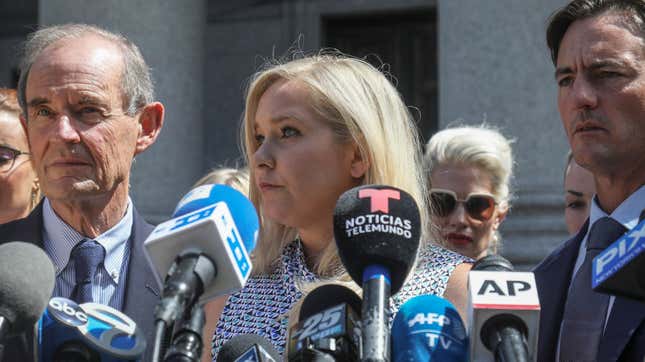The Epstein Accusers Are Tired of the Language Used to Describe Sexual Assault
Latest

In a recent interview with Glamour, five of the women who have come forward to accuse Jefferey Epstein and his former girlfriend Ghislaine Maxwell of sex trafficking and rape, among other crimes, say they’re tired of the labels, like “sex slave,” used to describe what they went through.
Sarah Ransome says she was 22 and trying for a job in the fashion world when Epstein allegedly invited her to vacation on his private island and sexually assaulted her for the six months she was trapped there. She also says the language of media outlets commonly use to describe sexual assault made her hesitant to come forward: “There were many times that I was going to come forward in the last 14 years,” Ransome told Glamour. “But the one thing that really, really upset me was the phrase ‘sex slave.’ It is so horrible.”
-

-

-

-

-

-

-

-

-

-

-

-

-

-

-

-

-

-

-

-

-

-

-

-

-

-

-

-

-

-

-

-

-

-

-

-

-

-

-

-








































